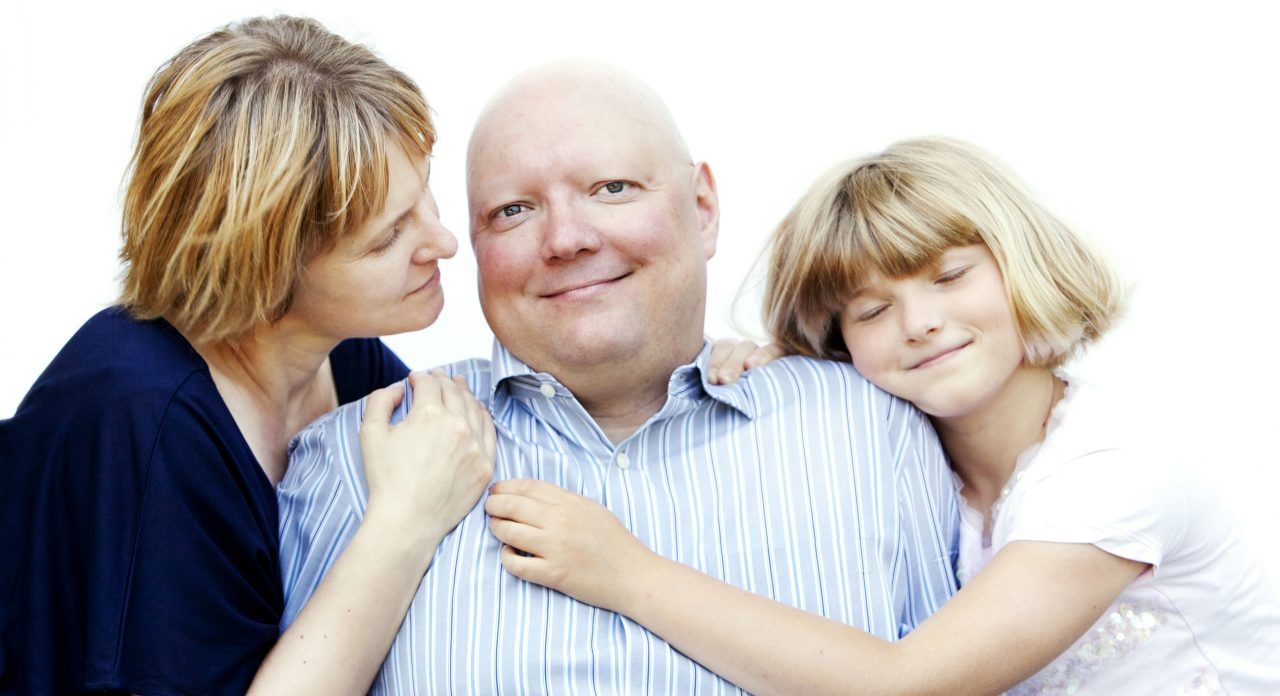Caring for Someone with Lung Cancer

That cigarette habit took its toll. Now what?
He knew the risks of smoking. But he kept smoking and now he has lung cancer, the leading cause of death by cancer. Each year, more people die of lung cancer than of colon, breast, and prostate cancers combined. Most of these lung cancers could have been prevented. Smokers can quit smoking, and people can stay away from second-hand smoke.
YOU MIGHT ALSO LIKE: You CAN Quit Smoking: Here Are Tips to Succeed
Lung cancers are so fatal because they tend to be discovered late, when they are hard to cure. Current or former smokers should consider asking for a new test, a low-dose CT scan, which can catch a cancer earlier.
Lung cancer may not, however, be a quick death sentence: More than 430,000 people alive today have been diagnosed with lung cancer at some point, according to the American Cancer Society. Quitting smoking has been shown to help people with lung cancer live longer, even if the cancer has spread, and lowers the chance of a second lung cancer.
Now that your loved one is sick, you’ll need to learn the language of this strange new medical world. When doctors speak of “NSCLC” they mean “non-small cell lung cancer,” which accounts for about 85 percent of all cases. It includes adenocarcinoma, the most common form of lung cancer in the United States; squamous cell carcinoma, which accounts for 25 percent; and large cell carcinoma, which is less common.
Small cell lung cancer (or SCLC) accounts for 10 to 15 percent of all lung cancers. These tend to grow more quickly and are also more responsive to chemotherapy.
Fewer than 5 percent of lung cancers are lung carcinoid tumors, also called lung neuroendocrine tumors. Most of them grow slowly and do not spread.
As the disease advances, a cancer in one lung spreads to the lymph nodes (considered “Stage II” or “Stage III,” depending on whether it spreads to nodes in the middle of the chest) and on to the other lung, to fluid around the lungs or to the liver or other organs (“Stage IV”). At Stage IV, only about 1 percent of patients survive for five years.
Surgery, radiation, chemotherapy, other targeted therapies and immunotherapy — alone or combined — may be recommended. As the caregiver, let your loved one’s doctors know if you see side effects, as they often can be avoided or treated. Some common side effects among cancer patients are blood clots, problems with memory and concentration from chemotherapy (often called “chemobrain”), diarrhea, fatigue, nausea and vomiting, mouth sores, pain, tingling, or weight loss or gain.
Learn all you can. Knowledge builds confidence. But avoid information overload. Looking at lung cancer statistics can leave you both anxious or despondent. Remember that statistics are numbers about thousands of people. Each case is unique.
Keep asking the healthcare team about the current prognosis for your love one and any other questions you may have. A patient’s prognosis can change over the course of treatment, especially with the approval of new treatments or participation in clinical trials.
You will most likely need to help your loved one through treatment, and a long list of chores — from insurance and legal paperwork to fielding phone calls. Be sure that you both have a health care proxy, a durable power of attorney, and a living will. Let family and friends help you. Keep a list of regular chores and assign them among your inner circle. For smaller chores, be ready to make suggestions if someone says “How can I help?”
YOU MIGHT ALSO LIKE: Managing the Financial Squeeze of Cancer Care
Lung cancer resources
- CancerCare offers support groups specifically for lung cancer patients and lung cancer caregivers, counselling by oncology social workers, and financial assistance.
- American Lung Association provides information on lung cancer and coping with breathing problems, side effects, and physical activity.
- Lung Cancer Alliance offers an information line (1-800-298-2436) as well as a phone buddy program, referrals to support groups, and more.
- Lungevity.org matches patients and caregivers to volunteers with a similar history for email or phone support.
- CancerSupportCommunity provides a helpline (1-888-793-9355) as well as online chat support and online, professionally led support groups for caregivers and patients.
One-on-one support for all cancers
- Imerman Angels (1-877-274-5529) partners a cancer patient with someone who has beaten the same type of cancer.
- Cancer Hope Network (1-877-467-3638) also matches cancer patients to a survivor with a similar kind of cancer.
- The Scott Hamilton CARES Initiative - 4th Angel Program (1-866-520-3197) matches cancer patients and caregivers with a coach, working by phone or email.
Updated:
April 07, 2020
Reviewed By:
Janet O’Dell, RN